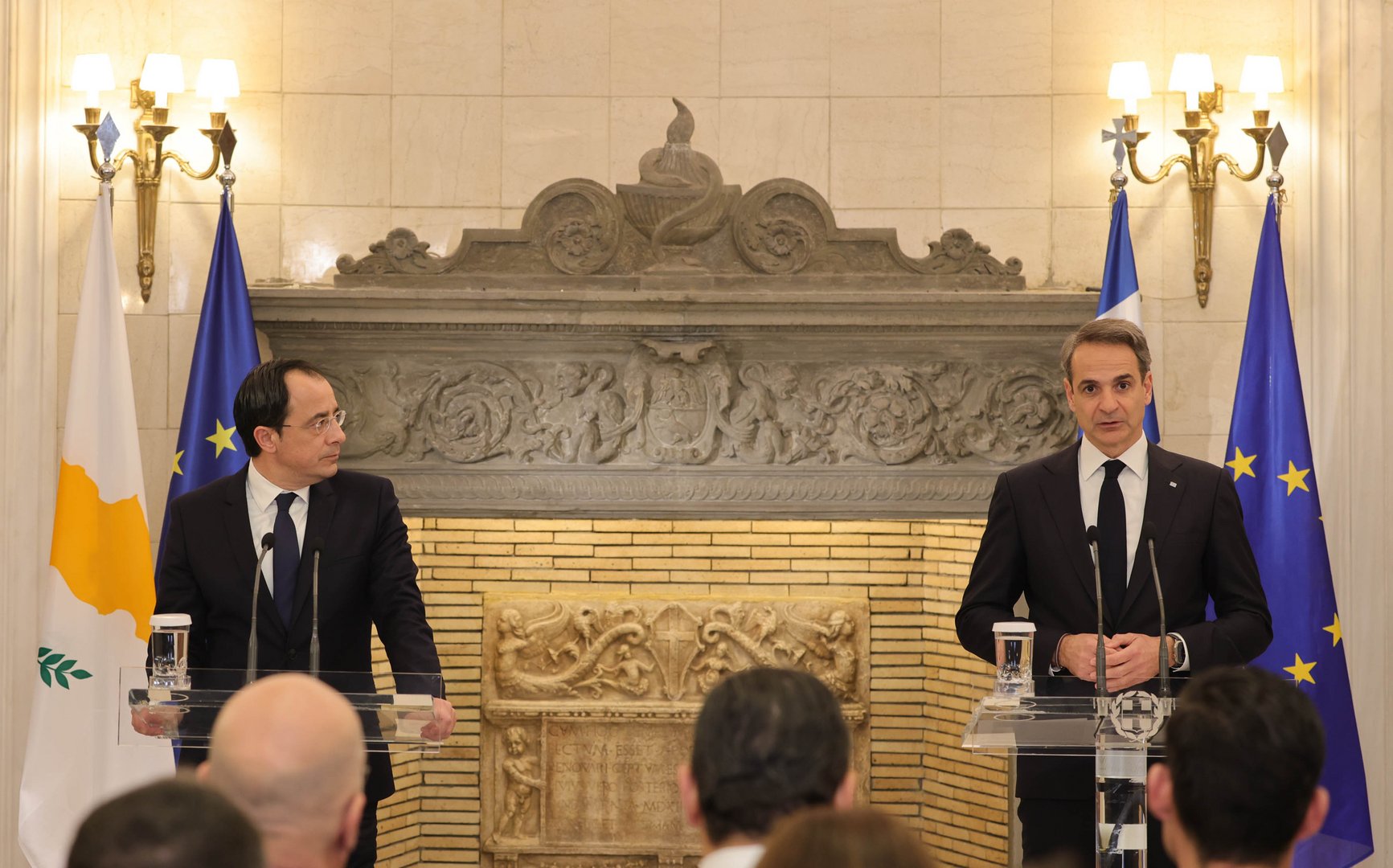A new body that would facilitate coordination of actions between Greece and Cyprus was announced during President Nikos Christodoulides’ visit to Athens, his first as head of state. The supreme intergovernmental cooperation council will facilitate intergovernmental coordination and cooperation through institutionalised dialogue on a range of issues, including energy, shipping and protection of the environment.
During the joint news conference, Prime Minister Kyriakos Mitsotakis said the council, which should have been established some time ago, will set common goals and common time-frames as well as specific deadlines on the way the cooperation between the two states could become closer. President Christodoulides said the move showed his visit was not just of a symbolic nature but of substance, given the common challenges the two countries had to face and the common objectives on bilateral and regional levels.
That something of practical value came from Christodoulides’ first visit to Greece was good, the two leaders not restricting themselves to the platitudes and hackneyed rhetoric that, more often than not, mark these visits. There were some platitudes, but both leaders appeared on the same wavelength regarding the need for a Cyprus settlement and Mitsotakis supported Christodoulides’ pursuit of a more active involvement of the EU in the peace efforts.
This was a good start for the two leaders and it was important that both Mitsotakis and his foreign minister Nikos Dendias stressed the importance of a solution to the Cyprus problem, not just the resumption of the talks. This type of public support could strengthen Christodoulides’ position in dealing with the rejectionist parties that are in his government and, perhaps, change the feelings of resignation surrounding the Cyprus issue.
As regards the cooperation and coordination between the two governments, this would happen without the need for a supreme council as long as the political will existed in Athens and Nicosia and there were open channels of communication between the two governments. In the past, when there were good relations between the two governments, which had not always been the case, they worked in tandem and achieved the goals they set.
Cyprus’ accession to the EU was the result of close cooperation between the governments of Greece and Cyprus. There was no supreme council of cooperation, but there was a strong relationship between then president Clerides and then PM Simitis, which led to common goals and an agreed strategy for achieving them. If Mitsotakis and Christodoulides forge a similarly strong relationship then the council of cooperation will be successful and productive.







Click here to change your cookie preferences